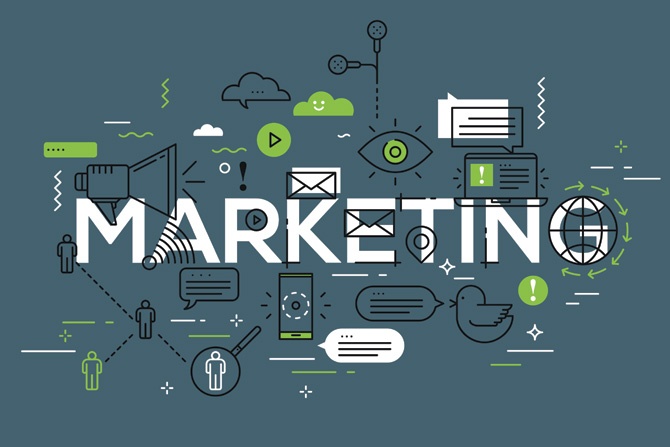Just in case you stepped away from your computer for a few minutes, marketing technology — or martech — describes the software and technology used to attract and retain customers. There’s been a lot of talk about it, and rightfully so. According to HubSpot’s recent article, “What Marketing Leaders are Investing in This Year,” 60% of marketers indicated that they are set to increase their marketing technology spending in the next 12 months. The reason, of course, is that investments in marketing technology are the solution du jour when it comes to a financial institution’s ability to, as HubSpot puts it, “retain and delight their audiences and react at speed when necessary. And the options are vast. As of 2020, there were 8,000 different martech tools to choose from, ranging from data analytics platforms to CRMs, to internal team collaboration tools.”
Now, the need for better data analytics, automated processes and collaboration tools has been around for quite some time. With the changes we’re seeing from COVID-19, and the trend toward virtual officing, that need has increased significantly. The processes, and the personnel, that facilitated the conception and execution of marketing messaging no longer live under one roof. With stakeholders scattered – the usual players such as product development, sales, brand and creative – it’s just no longer possible to simply get together in a conference room and “hammer things out.”
What’s the solution? Marketing technology. Well, unfortunately, it’s not quite as simple as that. As Laurie Busby pointed out in her Financial Brand article, “Marketing Automation Doesn’t Have to End in Costly Failure,” marketing automation can, unfortunately, end in costly failure. “Some financial institutions are so eager to enter the martech world that they let themselves be sold deluxe software packages and empty promises. Many such teams sign on with tech-giant platforms that charge monstrous upfront costs and require exhaustive training. Months later — sometimes longer — these institutions still won’t have the software up and running. Without the right support, these once enthusiastic folks find themselves stuck wading through massive “bloatware” platforms. No one on their teams has the bandwidth to train new users properly, let alone manage. Worst of all, they find themselves no closer to their goals and can’t demonstrate any ROI to their key stakeholders.”
First Interstate, a community bank headquartered in Billings, Montana with more than 150 offices across Idaho, Montana, Oregon, South Dakota, Washington and Wyoming, solved this challenge with a private label portal from BankMarketingCenter.com.
“As a large community regional bank with a diversified suite of financial products and services, we knew that we needed a way to get branded, compliant, approved messaging out into the marketplace in an efficient, cost-effective manner,” said Sara Becker, senior vice president and director of marketing and communications at First Interstate. “That led us to BankMarketingCenter.com and the development of a private label portal.”
First Interstate’s portal is a custom-designed, automated system that organizes assets, streamlines the review process, tracks projects at every stage of development, archives the entire project process from start to finish, offers high-quality templates along with thousands of images, and ensures both information accuracy and brand standards compliance.
“Anything going through our agency was expensive and had a long turnaround time; sometimes as long as two weeks,” said Rhianna H. Tretin, marketing and PR specialist at First Interstate. “And, we could never be sure that the information in those materials was current and compliant. When we access materials in the portal, we know that the information in those templates is current and that it meets compliance demands.”
BankMarketingCenter.com allows First Interstate Bank to get its marketing message out quickly, efficiently, and always on-brand. The bank’s 1,200 users can access approved, branded materials through the portal and customize them in seconds to target their local markets and then have them downloaded or electronically delivered to the approved vendor. The software also builds in controls from a budget and compliance standpoint since there are levels of access and approval for different users. Once a marketing product is ordered, the technology automatically routes the request through marketing/compliance for approval. Once approved, the product is sent directly to the bank’s approved printer or media outlet.
By working with BankMarketingCenter.com, First Interstate Bank can maintain control of its brand image and empower team members at the local level with high-quality, professionally created ads and marketing materials they can customize. The portal has helped the bank save thousands of dollars in marketing costs, facilitate compliance, and respond more quickly to demands for marketing materials. And the bank anticipates that this trend will continue as it expands its use of the customized private label portal.
Busby concludes with this thought: “That is why when choosing a platform and package, you must not only consider your marketing needs, but also ensure that meeting them with martech falls within the scope of your department’s capabilities. Throughout the selection process, remember your end goal: You are aiming for better, personalized communication and smarter use of your team’s capabilities. The right software is out there — you just may need to poke around before you find it.”
We couldn’t agree more.










